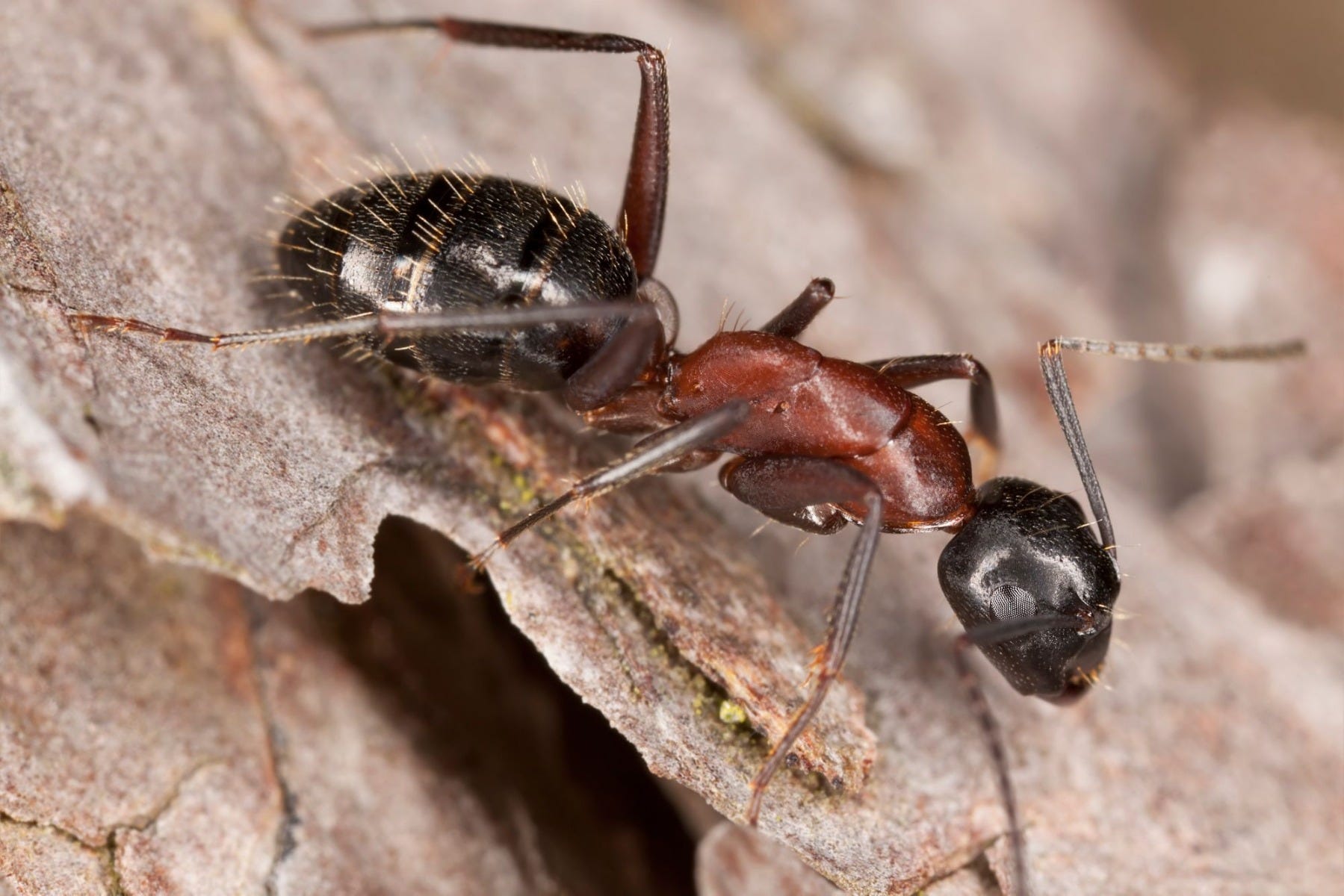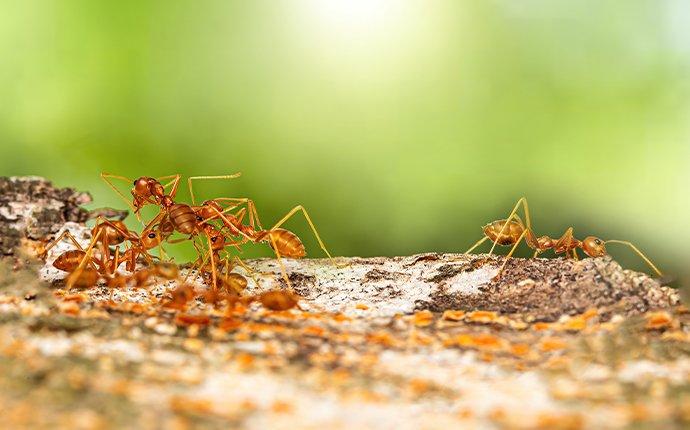Specialist Ant Control Services: Custom-made Therapies for Long-term Outcomes
Specialist Ant Control Services: Custom-made Therapies for Long-term Outcomes
Blog Article
Ecological Impact of Bug Control: Harmonizing Performance With Sustainability
The ecological effect of pest control is an important issue that needs a fragile equilibrium between attaining performance in handling insects and making sure sustainability of our ecological communities. As we make every effort to protect our plants, homes, and wellness from the threats presented by insects, the approaches we use can accidentally hurt the environment. From using dangerous chemicals that permeate right into our dirt and water to the unintended effects on non-target types, the consequences of conventional insect control methods are far-ranging. There are emerging approaches that provide hope for a much more sustainable approach to pest administration. These options not only goal to deal with the immediate pest troubles however additionally think about the lasting health of our planet.
Damaging Chemicals in Parasite Control
The application of unsafe chemicals in insect control postures substantial environmental and wellness dangers that require careful consideration and mitigation techniques. Pesticides, insecticides, and herbicides are typically made use of to get rid of parasites, yet their prevalent application can cause unplanned effects. These chemicals can pollute dirt, water resources, and the air, impacting not only the targeted pests yet likewise helpful bugs, wildlife, and humans.

To resolve these threats, integrated insect monitoring (IPM) techniques are being advertised as an extra lasting choice. IPM includes a mix of methods such as biological control, habitat control, and the targeted use of chemicals as a last option (ant control salisbury nc). By adopting an alternative approach to pest control, we can decrease the ecological and health impacts linked with unsafe chemicals while successfully handling pest populations
Influence on Non-Target Types
Thinking about the unexpected effects of parasite control approaches, the influence on non-target types is an important aspect that requires detailed assessment. While pest control procedures aim to target certain insects, various other organisms in the ecological community may be inadvertently influenced. Non-target types, consisting of valuable bugs, birds, animals, and even plants, can suffer indirect or direct harm from pesticide applications or organic control techniques.
Insecticides developed to deal with a particular insect pest might damage pollinators like bees or all-natural predators such as ladybugs. Biological control representatives, if not species-specific, can pose threats to unplanned targets, interfering with the environmental equilibrium.
To mitigate the impact on non-target species, integrated pest management (IPM) techniques that emphasize a holistic method to pest control are suggested. These techniques prioritize using eco-friendly practices, reducing damage to advantageous microorganisms while successfully handling pest populations. Carrying out extensive danger analyses and monitoring the outcomes of parasite control efforts are vital action in protecting non-target species and advertising total ecological community wellness.
Dirt and Water Contamination
Unexpected environmental repercussions of bug control approaches expand past affecting non-target species, with considerable effects for soil and water contamination. Chemicals, herbicides, and chemical plant foods made use of in insect control can leach right into the soil and contaminate groundwater, posing a threat to both water and earthbound ecological communities. Dirt contamination can disrupt the balance of microbes important for vitamins and mineral biking and plant growth, causing reduced soil fertility and productivity. These chemicals can continue in the setting for extended periods, gathering in the soil and possibly entering the food chain.
Water contamination is another important concern connected with bug control practices. Overflow from agricultural fields treated with chemicals can lug these chemicals right into nearby water bodies, impacting water organisms and water top quality. Contaminants in water sources can have far-reaching consequences, affecting not just marine life yet also human health with the intake of contaminated water or aquatic organisms. To minimize dirt and water contamination from parasite control activities, integrated bug administration approaches that focus on sustainability and reduce chemical inputs are important.
Air Contamination From Chemical Usage
Direct exposure to air-borne pesticides during farming applications postures a considerable issue for air pollution control actions. When chemicals are sprayed onto plants, they can volatilize right into the air and type volatile natural compounds (VOCs) and various other air-borne pollutants. These chemicals can add to the development these details of ground-level ozone, a significant element of smog that can have harmful effects on human health, plant efficiency, and general air quality. Additionally, chemical drift, where pesticides are carried by the wind to unintentional locations, can cause the contamination of close-by ecosystems and water bodies.

Methods for Lasting Pest Control
In the realm of farming practices, applying sustainable bug control strategies is extremely important for preserving ecological balance and protecting crop returns. Sustainable parasite control highlights making use of eco-friendly methods to manage pest populaces successfully while decreasing injury to non-target organisms and communities. Integrated Insect Management (IPM) is a widely embraced technique that incorporates organic, social, physical, and chemical control methods to achieve lasting parasite administration options.
Crop turning and diversification are also reliable techniques to interfere with pest life cycles and produce much less positive problems for bugs to thrive. Eventually, by integrating these lasting pest control approaches, farmers can accomplish a balance between pest management efficiency and environmental stewardship.
Final Thought
Finally, the ecological effect of bug control methods have to be very carefully considered to balance performance with sustainability. Dangerous chemicals made use of in pest control can cause soil and water contamination, air pollution, and damage non-target varieties - termite control services. It is important to apply sustainable bug control strategies to reduce these adverse results on the environment and advertise a much healthier community for future generations
By taking on a holistic approach to pest control, we can lessen the ecological and health influences associated with dangerous chemicals while efficiently managing pest populations.

To reduce the air contamination triggered by pesticide usage, it is important to take on incorporated bug management strategies that focus on the use of non-chemical bug control techniques, such as crop rotation, natural killers, and immune crop ranges. Lasting insect control stresses the use of eco friendly techniques to take care of insect populaces efficiently while minimizing damage to non-target microorganisms and ecosystems. Integrated Bug Monitoring (IPM) is a widely adopted technique that incorporates organic, cultural, physical, and chemical control approaches to achieve lasting parasite management options.
Report this page